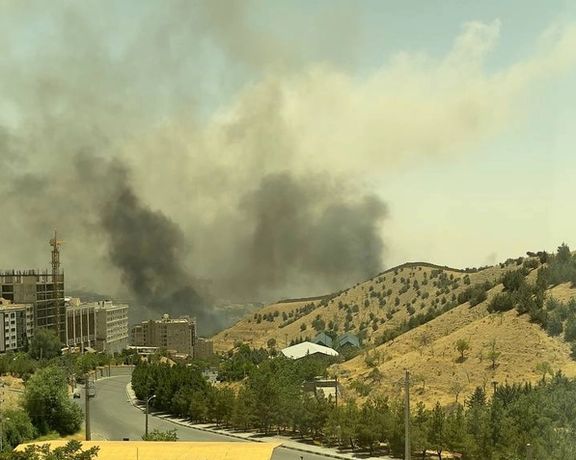I still carry its smell of damp concrete and stale fear. I dream of bulldozers flattening the walls and children playing where the interrogation rooms once were. But bombs are not bulldozers, and a missile strike is not a promise of renewal.
I picture a June afternoon. The heat in Tehran is already unbearable when the siren splits the air.
Inside Evin’s women’s ward, glass gives way with a sharp, accusing crack. Shards slice arms and cheeks before anyone even understands what happened. Outside, the scene is worse: mothers, fathers, siblings—mine among them—stand at that kiosk manned by a teenage conscript teenager who despises his post as much as we despise the regime.
In a single flash, they all disappear.
This is every visiting day at Evin: desperate faces pressing for scraps of news, hoping for a glimpse, a rumor, a promise. Now the asphalt is scorched, the kiosk mangled.
How, exactly, does bombing a prison free a nation?
Ruins attract new bosses, not playgrounds. That is not the future we fought for when we risked everything to challenge the regime.
These are strange times—to say the least.
Friends and family members are turning against one another. Geography is becoming a dividing line.
Concerned, broadly well-meaning Iranians watching from London or LA are far more likely to cheer. They don’t hear the explosions rattling our walls. They don’t see the plumes or the pale, crumpled faces—our neighbors, our parents, our children—shaking in silence.
I try not to block those who infuriate me with their aloofness, their crass humor. They’re a product of the Islamic Republic too—desensitized by a daily flood of suffering from Kyiv to Gaza, stripped of empathy by proximity to too much pain.
I try not to block them because we need each other, as many as we can, if we’re to survive this and not fall into the abyss.
I am exhausted, furious, with this regime as anyone. I despise the system that robbed me of my life with empty slogans, the man who telegraphs defiance from a bunker under my city.
But this is not deliverance.
Once we were never asked whether we wanted uranium enrichment in exchange for our aspirations. Now no one asks whether we want Netanyahu’s jets overhead or police compounds in downtown Tehran pulverized.
I shed no tears for slain IRGC generals—courtrooms would have been better—but I do mourn our own powerlessness, trapped between rulers who do not care and outsiders who use our suffering as a talking point.
Spare us the righteous speeches please. Pursue your interests if you must, but don’t pretend the collateral is a gift to the Iranian people.
A true leader would have stepped aside long ago to spare us this spiral. Instead, Khamenei hides underground while we—prisoners in and outside Evin—keep counting the costs.
I am typing this having passed by a crater’s dust on my way home. I’m not sure who will read this. But it’s the only thing I can do between mourning the lives blasted away and fearing the new bars that will rise where the old ones fell.










